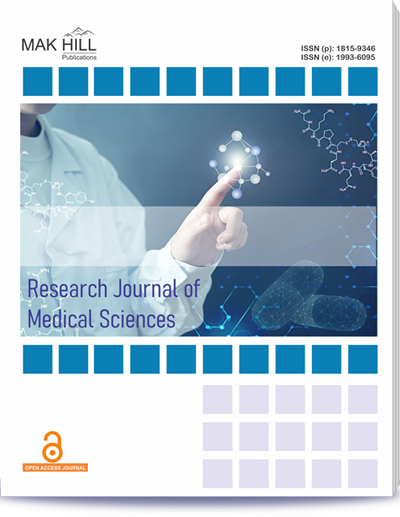
Research Journal of Medical Sciences
ISSN: Online 1993-6095ISSN: Print 1815-9346
174
Views
10
Downloads
Abstract
Surgical Site Infections (SSIs) is defined by the Centers for Disease Control and Prevention as a wound infection that occurs within 30 days of an operative procedure or within a year if an implant is left in place and the infection is thought to be secondary to surgery. This was a single center hospital based Prospective Observational Study conducted on patients who underwent Surgery in SIMS and RC. Ethical committee clearance was obtained prior to the study and a total of 478 patients who underwent abdominal surgery were included in the study. All post‐surgical patients were surveilled on POD‐3, 7, 14‐18 and POD 25‐30. The study period being from February 2021 to August 2022. Out of 478 patients, 46 patients developed SSI (9.62%). Gender distribution was 26 males (60.6%) and 20 females (39.3%).23.76% of patients undergoing Emergency Surgeries developed SSIs (p<0.05) and 5.83% undergoing elective surgery developed SSI. Majority of the patient developing SSIs belonged to Contaminated or Dirty wound (p<0.05). 12.46% of patients undergoing open surgeries developed SSI whereas, 3.36% of patients undergoing laparoscopic surgeries developed SSI (p<0.05). in 33.33% patients, organism isolated was E. coli. Diabetes (34.78%) and Smoking (21.74%) were found to be the major risk factors for developing SSI.
How to cite this article:
J. Kantharaj, M. Mohammed Furqan, A. Rinisha, Ramesh M. Tambat and Sajitha . Prospective Study to Determine Peri‐Operative Risk Factors of Surgical Site Infection (SSI) in Abdominal Surgeries.
DOI: https://doi.org/10.36478/10.36478/makrjms.2024.8.466.470
URL: https://www.makhillpublications.co/view-article/1815-9346/10.36478/makrjms.2024.8.466.470